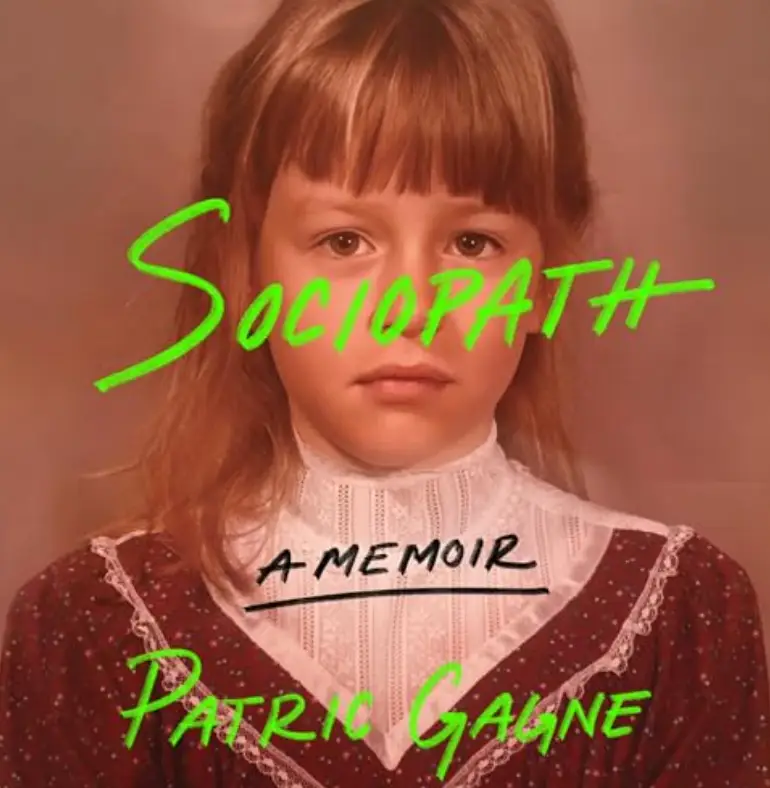
Topics: Mental Health, Books, Life, Real Life
To anyone on the outside, author and therapist Patric Gagne looks like any other ordinary LA mother and wife.
Her Instagram feed is filled with pictures of her kids, she jokes about the ‘Sunday scaries’ and writes about carpooling struggles.
She also happens to be one of the estimated 13.7 million Americans who is a diagnosed sociopath.
The word ‘sociopath’ has probably already stirred up an uncomfortable feeling in you - conjuring up images of ‘monsters’ like Ted Bundy, TV assassins like Killing Eve's Villanelle or cut-throat CEOs.
Advert
But Patric - who acknowledges the tropes that often spring to mind - is likely far from what you imagined, and she argues the term is widely misunderstood.

Ever since she was a little girl, she knew she was different from the other kids.
"I started stealing before I could talk. At least, I think I did. I don't remember the first time I took something, just that by the time I was six or seven I had an entire box if things I'd stolen in my closet," Patric wrote in her memoir Sociopath.
By age seven, Patric realised she didn't feel things the same way her peers did, and spent much of her childhood trying to keep what she dubs 'the pressure' in her head at bay.
"I didn't feel guilt when I lied. I didn't feel compassion when classmates got hurt on the playground. For the most part I felt nothing." she said.
"And I didn't like the way 'nothing' felt. So I did things to replace the nothingness with... something."
She continued: "Empathy, like remorse, never came naturally to me.
"[...] My teachers talked about 'honour systems' and something called 'shame', but I didn't understand why these things mattered. I got the concepts intellectually, but they weren't things I felt."
One such example came after she stabbed a classmate with a pencil in her neck, admitting it gave her a release that she described as 'the best feeling ever'.

"With that one violent act - all traces of pressure were eradicated. Not just gone but replaced by a deep sense of peace," she recalled.
Nevertheless, Patric knew logically it was wrong to inflict pain on someone like this, later coming up with her own rules for how she would alleviate 'the pressure' in her head - number one was 'no hurting anybody'.
While stealing began as the easiest way to alleviate 'the tension' in her head, into her teens, Patric began breaking into houses and stealing cars to get the same relief from her apathy.
But things weren't always linear when it came to her 'rules'. Patric admitted that she once picked up a cat in the street and started to strangle it, squeezing tighter and tighter before finally letting it go.
She felt 'euphoric' in the moment, but knew it couldn't happen again - she didn't want to harm animals and the escalation, she wrote, scared her.
Patric was 11 years old when she first heard the word sociopath - she was visiting a state prison which her uncle was giving a tour of when he came out with it while referring to some of the inmates who had committed horrific crimes.
"It was simultaneously concerning and comforting that there was a word for people like me, even if it wasn’t the best word," she said.

It would be years later that - in her 20s - Patric would be told she was a sociopath by a psychologist after taking the psychopathy checklist assessment, most commonly used among offenders.
In the UK, 'sociopath' is considered an outdated term and had been grouped - along with psychopathy - under the umbrella of Antisocial Personality Disorder.
At its core, Patric, now 48, explains that being a sociopath means she lacks the learned social emotions including empathy, shame, guilt, remorse and love, but that doesn't mean she doesn't feel any emotion at all.
"There are eight fundamental inherent emotions that everyone is born with. It's anger, anticipation, joy, trust, fear, surprise, sadness and disgust. I have access to those, everyone does, including psychopaths. It's the learned emotions that people who are psychopathic and sociopathic struggle with," she told Mammamia.
Contrary to stereotypes in popular culture, Patric says she is able to connect with the learned social emotions, but it's just harder - and takes longer - for her to access them. It's theorised that psychopaths, on the other hand, cannot access these emotions at all.
Essentially, Patric believes the condition exists on a spectrum, with the most extreme examples being what spring to mind when you hear the word.
"‘I’m not trying to minimise sociopathy. I’m saying there’s nothing immoral or inherently wrong about not feeling empathy," she said.
"People like me are just different – it’s our behaviour that’s wrong at times. Just because I don’t care about you doesn’t mean I want to cause you pain."